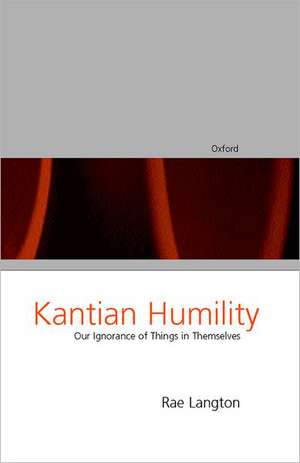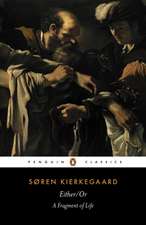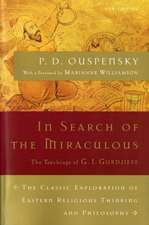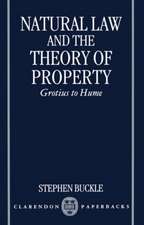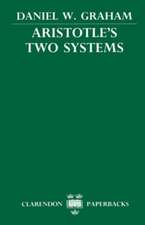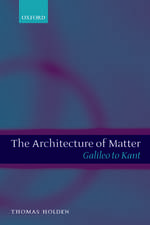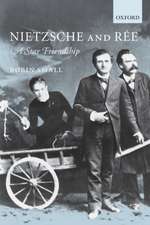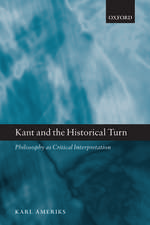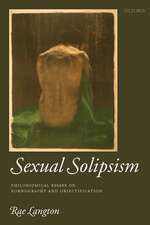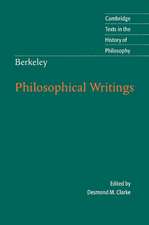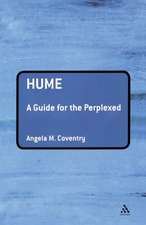Kantian Humility: Our Ignorance of Things in Themselves
Autor Rae Langtonen Limba Engleză Hardback – 30 iul 1998
| Toate formatele și edițiile | Preț | Express |
|---|---|---|
| Paperback (1) | 345.86 lei 31-37 zile | |
| OUP OXFORD – 18 ian 2001 | 345.86 lei 31-37 zile | |
| Hardback (1) | 402.24 lei 31-37 zile | |
| OUP OXFORD – 30 iul 1998 | 402.24 lei 31-37 zile |
Preț: 402.24 lei
Preț vechi: 539.16 lei
-25% Nou
Puncte Express: 603
Preț estimativ în valută:
76.97€ • 80.56$ • 64.06£
76.97€ • 80.56$ • 64.06£
Carte tipărită la comandă
Livrare economică 19-25 martie
Preluare comenzi: 021 569.72.76
Specificații
ISBN-13: 9780198236535
ISBN-10: 0198236530
Pagini: 248
Dimensiuni: 162 x 243 x 19 mm
Greutate: 0.56 kg
Ediția:198
Editura: OUP OXFORD
Colecția OUP Oxford
Locul publicării:Oxford, United Kingdom
ISBN-10: 0198236530
Pagini: 248
Dimensiuni: 162 x 243 x 19 mm
Greutate: 0.56 kg
Ediția:198
Editura: OUP OXFORD
Colecția OUP Oxford
Locul publicării:Oxford, United Kingdom
Recenzii
This is a marvellous book. Langton offers a fresh interpretation of Kant, the main tenets of which she states in a few bold propositions and then goes on to elaborate with great clarity and care. She supports her interpretation with a wealth of citations accompanied by insightful commentary.
This is one of the most original and thought-provoking books on Kant to have appeared for quite some time. Its scholarship and its philosophical insight are equally impressive, and it raises philosophical questions of considerable interest for the present day.
Langton's interpretation of [the 1750s] Kant is extremely helpful, and she makes much more sense of him than others have usually done ... highly stimulating ... gives us all much to think about.
A novel attempt to elucidate and defend a central Kantian thesis ... a most interesting, impressive, and scholarly exercise in Kantian interpretation.
Unlike most recent commentators, Rae Langton argues that Kant's distinction between appearances and things in themselves is based on his metaphysical denial of the reducibility of relations rather than on his epistemological conception of a priori knowledge. She situates this controversial claim in Kant's historical context and defends it with analytical rigor. Anyone interested in the perennially fascinating subject of Kant's transcendental idealism must reckon with this distinctive and challenging work.
I leave it to others more qualified than I am to argue about whether Langton's Kant is the historical Kant. Whether he is or not, the case he makes for our irremediable ignorance of the intrinsic properties of substances is extremely interesting and, in my opinion, something very like his conclusion is true. Langton's book makes a major contribution not only to historical scholarship but also to metaphysics and epistemology.
Admirably clear, tightly argued... an extremely engaging and thought-provoking book.
Clever and highly readable book ... the mastery that Langton displays is impressive ... presents a powerful case for thinking of Kant as disposed to deny us access to things in themselves by a pre-critical vision of the world of substances, whose inner nature is concealed because we are condemned to encounter them only through their interactions with us. Langton's book is a significant contribution to the recent literature on Kant's idealism, and will be widely discussed -- and doubtless widely disagreed with as well.
This is one of the most original and thought-provoking books on Kant to have appeared for quite some time. Its scholarship and its philosophical insight are equally impressive, and it raises philosophical questions of considerable interest for the present day.
Langton's interpretation of [the 1750s] Kant is extremely helpful, and she makes much more sense of him than others have usually done ... highly stimulating ... gives us all much to think about.
A novel attempt to elucidate and defend a central Kantian thesis ... a most interesting, impressive, and scholarly exercise in Kantian interpretation.
Unlike most recent commentators, Rae Langton argues that Kant's distinction between appearances and things in themselves is based on his metaphysical denial of the reducibility of relations rather than on his epistemological conception of a priori knowledge. She situates this controversial claim in Kant's historical context and defends it with analytical rigor. Anyone interested in the perennially fascinating subject of Kant's transcendental idealism must reckon with this distinctive and challenging work.
I leave it to others more qualified than I am to argue about whether Langton's Kant is the historical Kant. Whether he is or not, the case he makes for our irremediable ignorance of the intrinsic properties of substances is extremely interesting and, in my opinion, something very like his conclusion is true. Langton's book makes a major contribution not only to historical scholarship but also to metaphysics and epistemology.
Admirably clear, tightly argued... an extremely engaging and thought-provoking book.
Clever and highly readable book ... the mastery that Langton displays is impressive ... presents a powerful case for thinking of Kant as disposed to deny us access to things in themselves by a pre-critical vision of the world of substances, whose inner nature is concealed because we are condemned to encounter them only through their interactions with us. Langton's book is a significant contribution to the recent literature on Kant's idealism, and will be widely discussed -- and doubtless widely disagreed with as well.
Notă biografică
Rae Langton is Professor of Moral Philosophy at the University of Edinburgh
